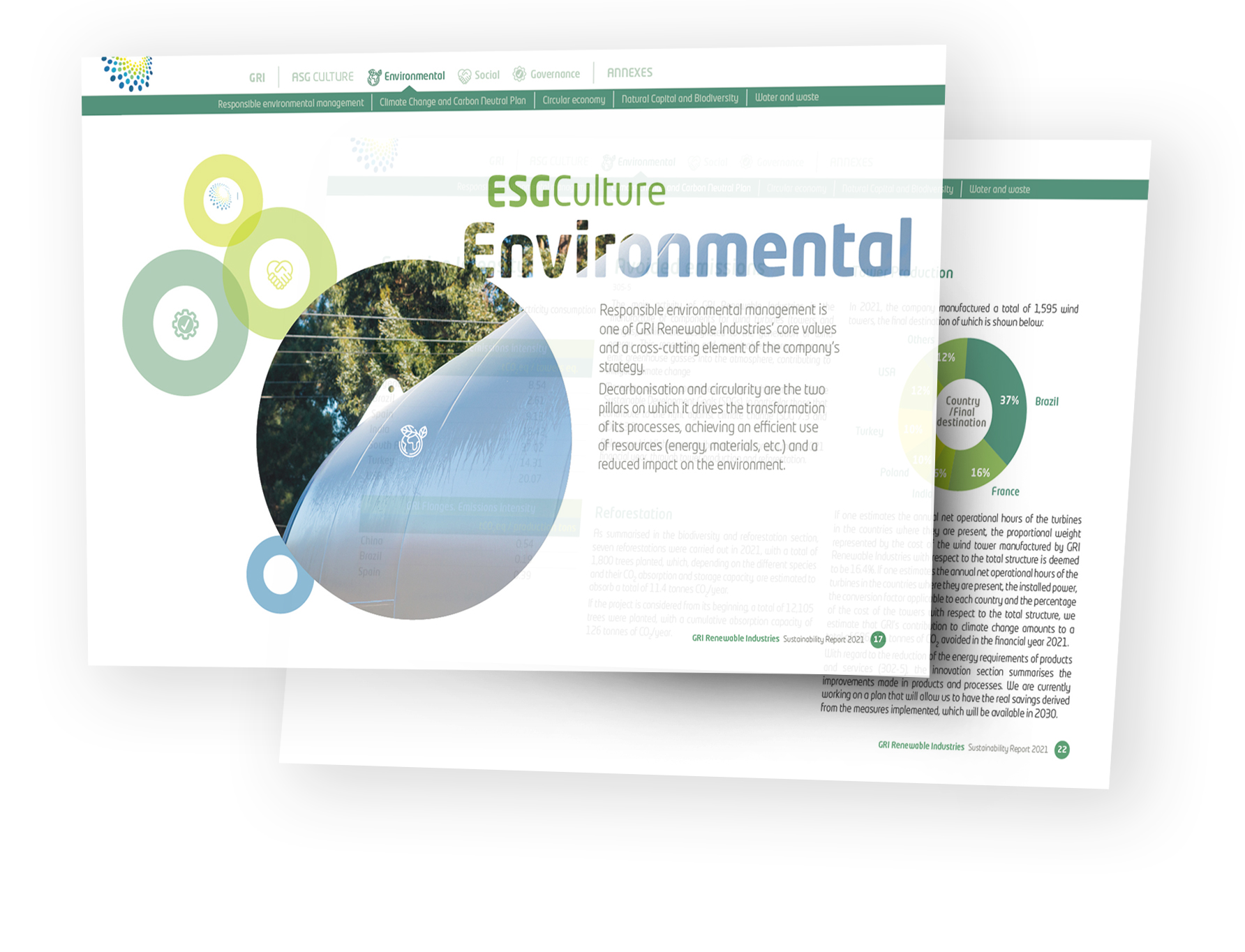

Responsible environmental management is one of GRI Renewable Industries’ core values and a cross-cutting element of the company’s strategy.
Decarbonisation and circularity are the two pillars on which it drives the transformation of its processes, achieving an efficient use of resources (energy, materials, etc.) and a reduced impact on the environment.
GRI Renewable Industries monitors the environmental impacts of its activities, measuring its performance and identifying opportunities for improvement.
At present, 100% of the plants are certified under the ISO 14001:2015 standard, as GRI Castings Zestoa will be certified in the first half of 2021. This means that 100% of the staff working in GRI’s factories are working under this standard.
To minimise the impact of potential environmental risks, GRI Renewable Industries makes financial provisions and has guarantees to cover the occurrence of environmental risks in the insurance policies it has taken out.
GRI Renewable Industries has high energy consumption due to its activity. Therefore, measures are developed to improve energy efficiency, reduce environmental impact and carbon footprint.
Total energy consumption in 2021 was 2,080,017 GJ. Natural gas and electricity consumption account for 98% of GRI’s energy consumption.

GRI Renewable Industries has obtained the emissions verification certificate under the UNE-EN ISO 14064:2012 standard, which measures the company’s carbon footprint for the offices in Madrid and the factories in Turkey, Brazil, Iraeta, Galicia and Seville.
The company is aligned with the Sustainable Development Goals (SDGs), mainly with those directly related to climate, such as SDG 13 “climate action” and SDG 7 “affordable and clean energy”.
In 2021, direct emissions and emissions due to electricity consumption were 159,176 tCO2 eq.
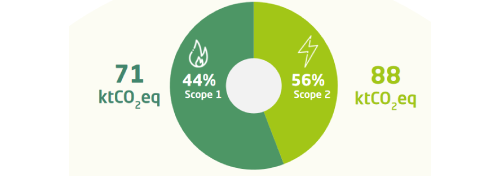
For GRI Renewable Industries, being a carbon neutral company implies being part of an important commitment in the fight against climate change, assuming a series of actions that promote and contribute to mitigate its impact. For this reason, we defined and approved the “2030/50 Carbon Neutral Plan” and incorporated it into the company’s decision-making, business strategy, management and performance.
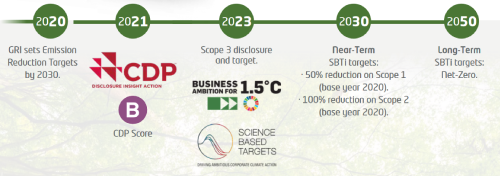
The towers are mainly made of steel (structure), as well as electrical and electronic equipment (packaging is of little relevance).
Steel, the main component of GRI Renewable Industries’ processes, is one of the main materials used by the global economy. This characteristic places it as the circular material par excellence and is in turn driving the integral transformation of the steel manufacturing sector.
A total of 753,807 tonnes of steel were consumed in 2021. It is estimated that 64% is of recycled origin.
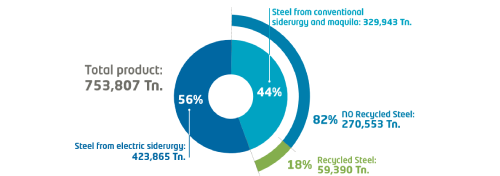
The Circular Economy involves reducing waste to a minimum and keeping the materials and components of a product within the economy when it reaches the end of its useful life, whenever possible. Thus, they have an added value by being productively used over and over again.
99% of the waste produced is non-hazardous and less than 1% is hazardous waste.
Non-hazardous waste: a total of 274,746 tonnes were generated. Steel scrap accounted for 98%, with a total of 269,339 tonnes.
Hazardous waste: a total of 1,094 tonnes were generated.
The protection and conservation of different ecosystems, both terrestrial and aquatic, must be a priority for everyone. Ensuring this legacy for future generations is a guiding commitment and is directly related to SDG 15 “Life of terrestrial ecosystems”.
GRI Renewable Industries aims to respect the natural capital, biodiversity and cultural heritage in the environments where it operates. To this end, and along with other measures, it has been carrying out reforestations since 2016, as part of the “one tower one tree” initiative, whereby it undertakes to plant a tree for each tower manufactured.
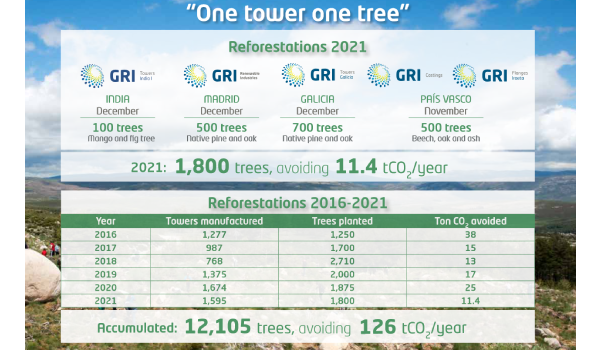
Water is a natural, limited, scarce and essential commodity for life on earth. It is a fundamental part of sustainable and socio-economic development. However, current forecasts (OECD) show that if we continue with business as usual, by 2050 almost half of the world’s population will be living in areas under severe water stress.
Although GRI Renewable Industries is not a large consumer of water in its production processes, these are monitored in order to protect and make efficient and sustainable use of water, identify deviations or possible actions for improvement.

Por favor, gira tu móvil para navegar